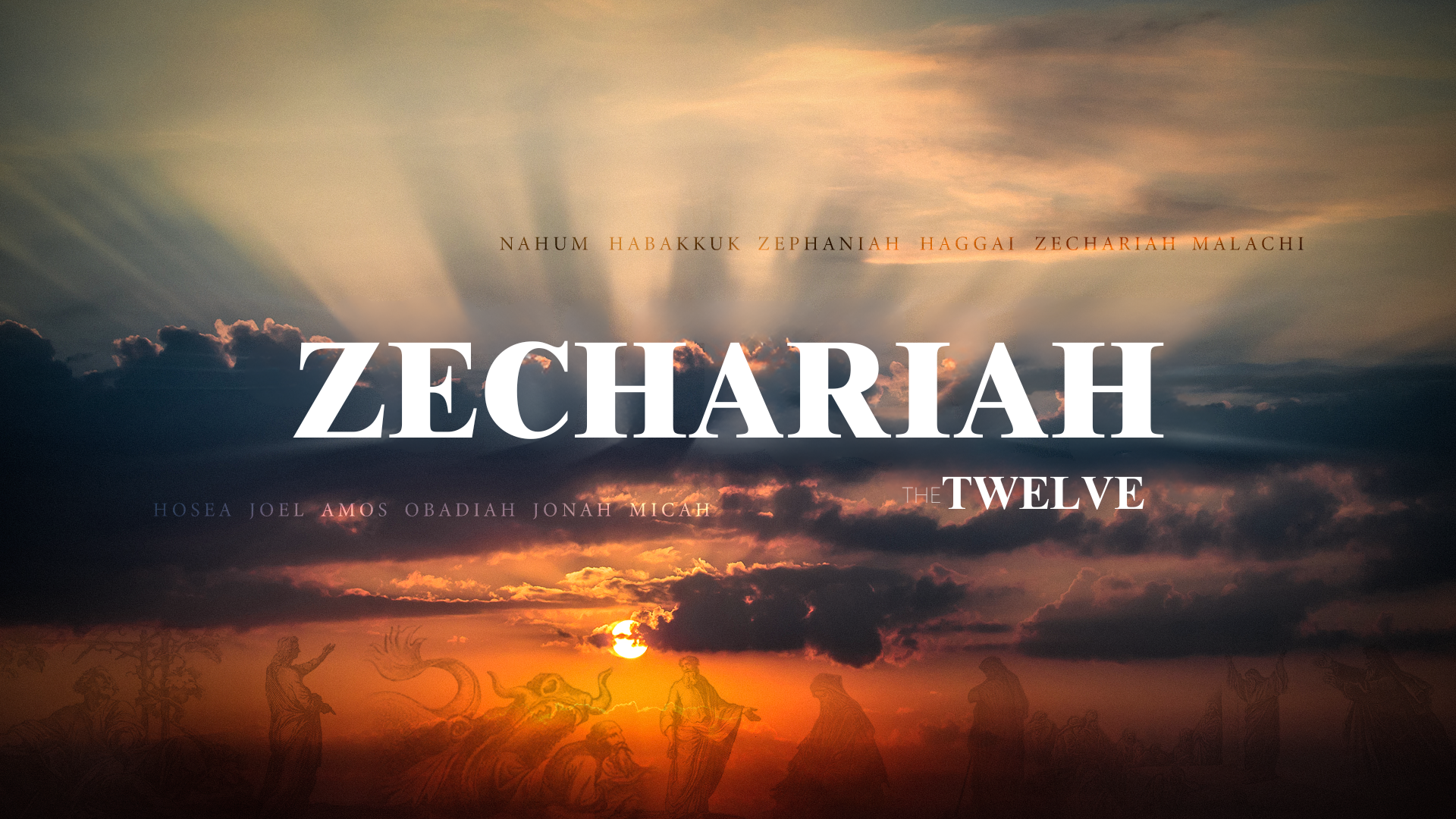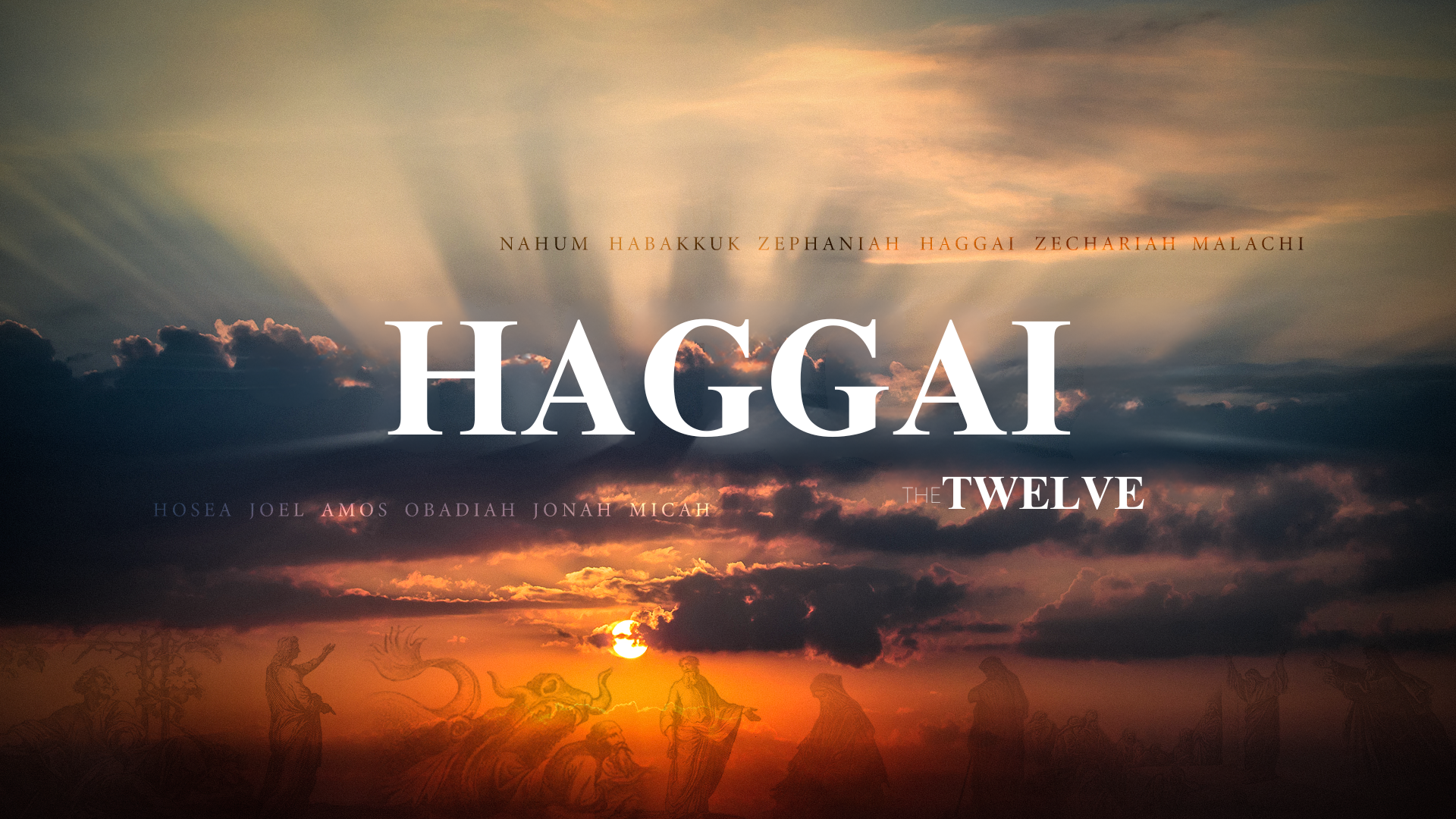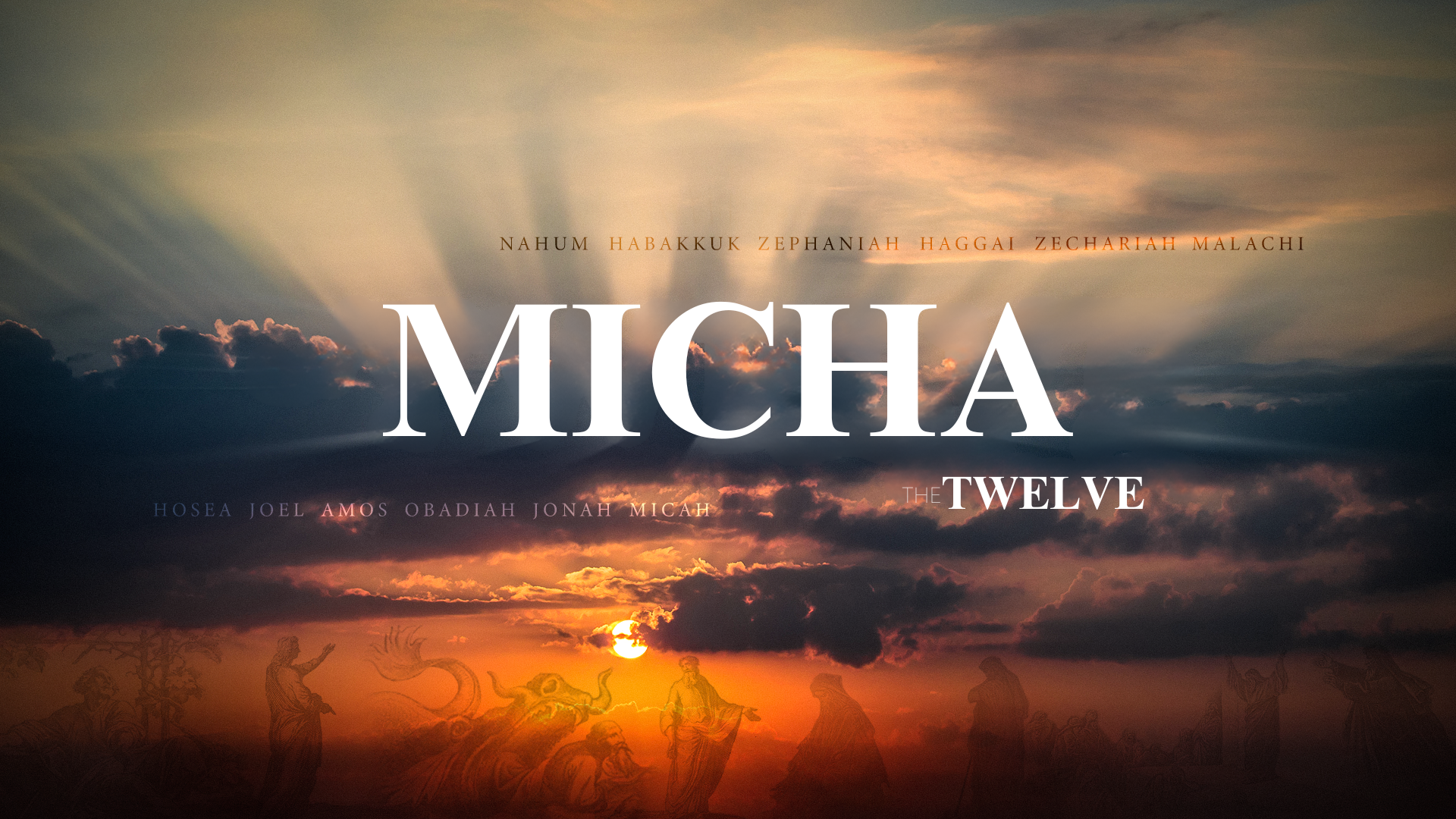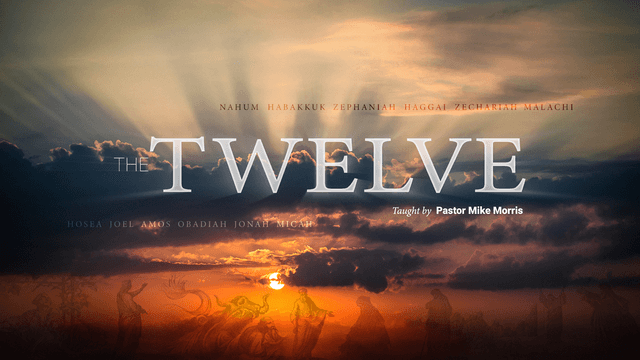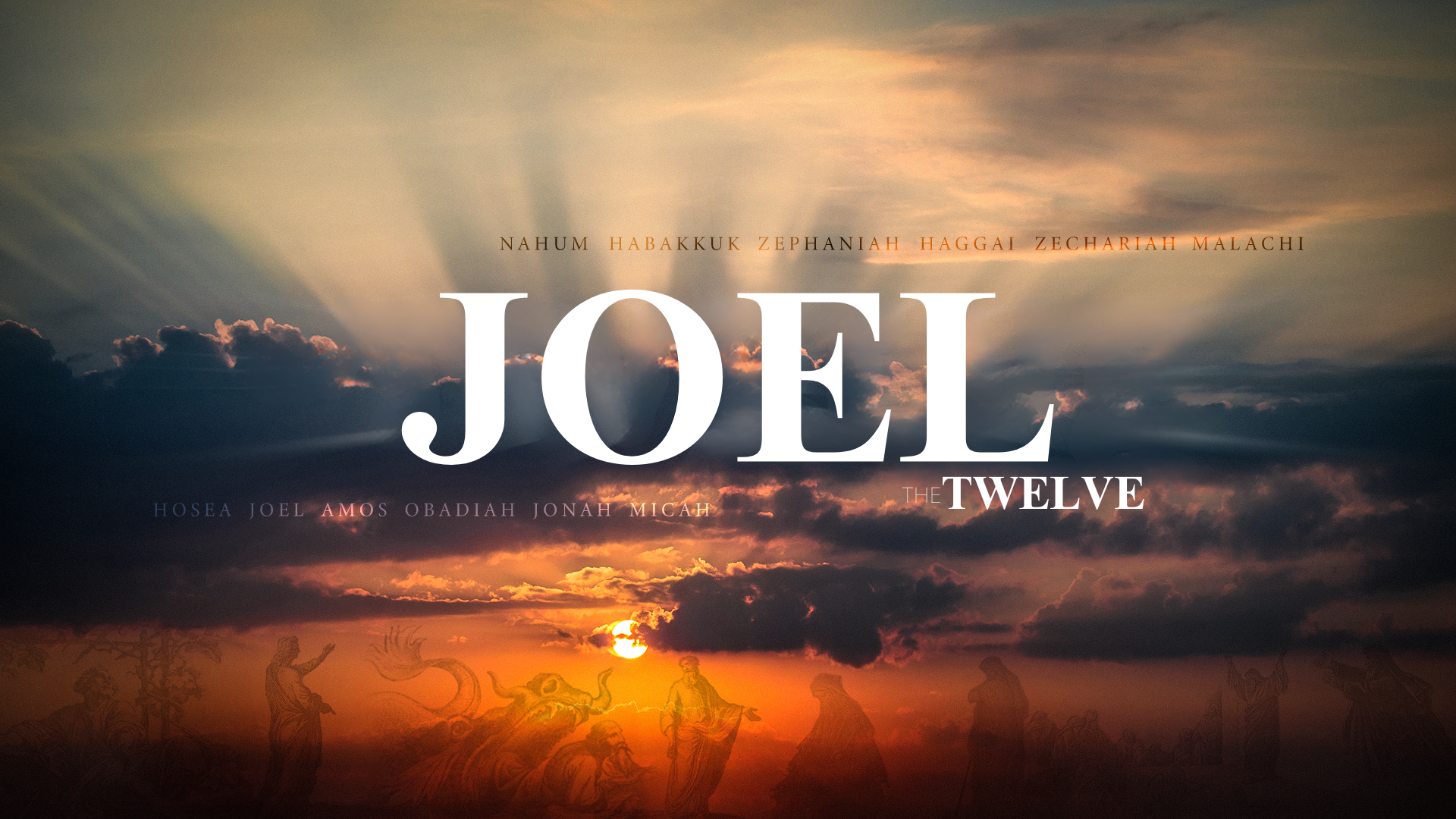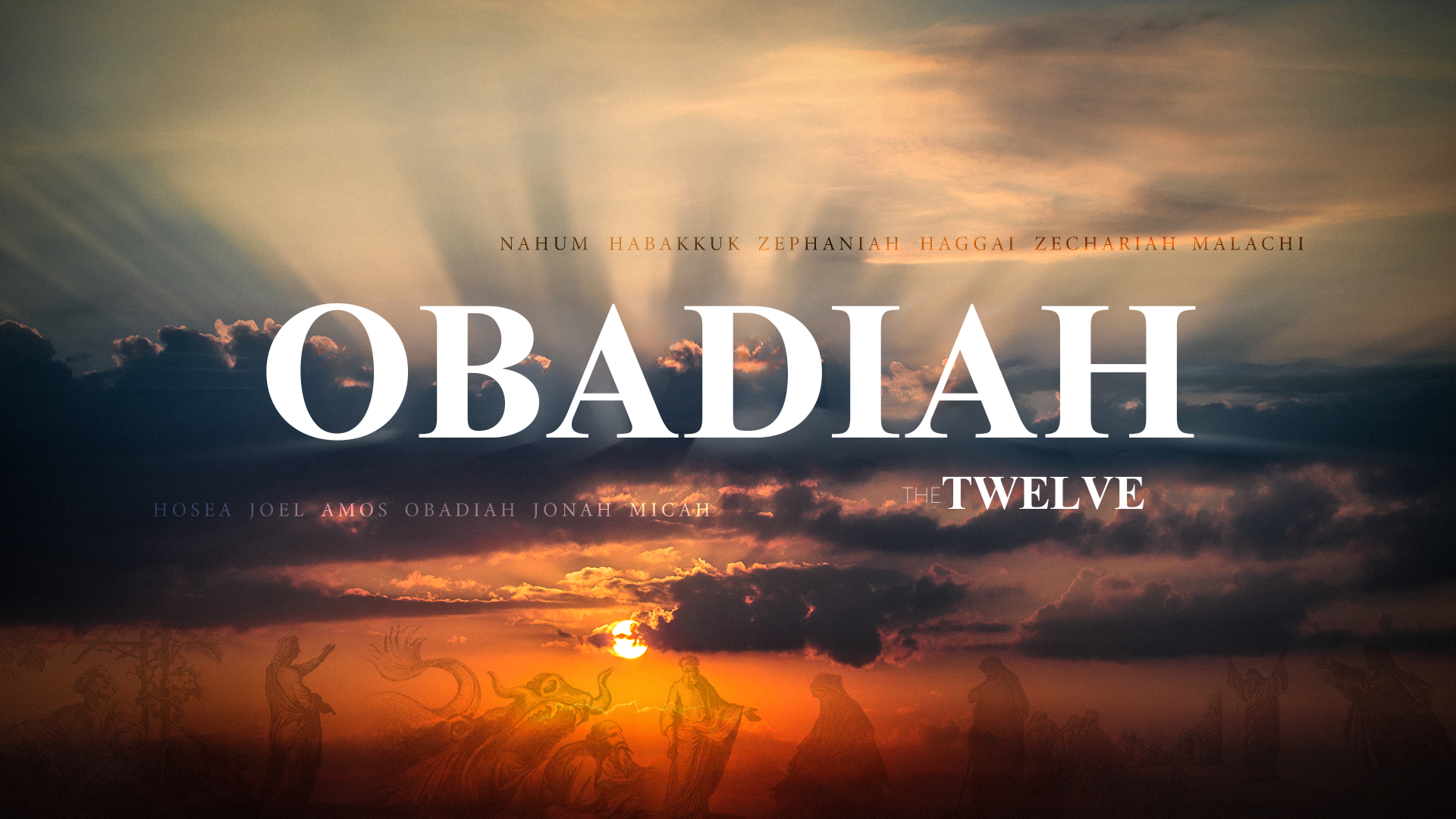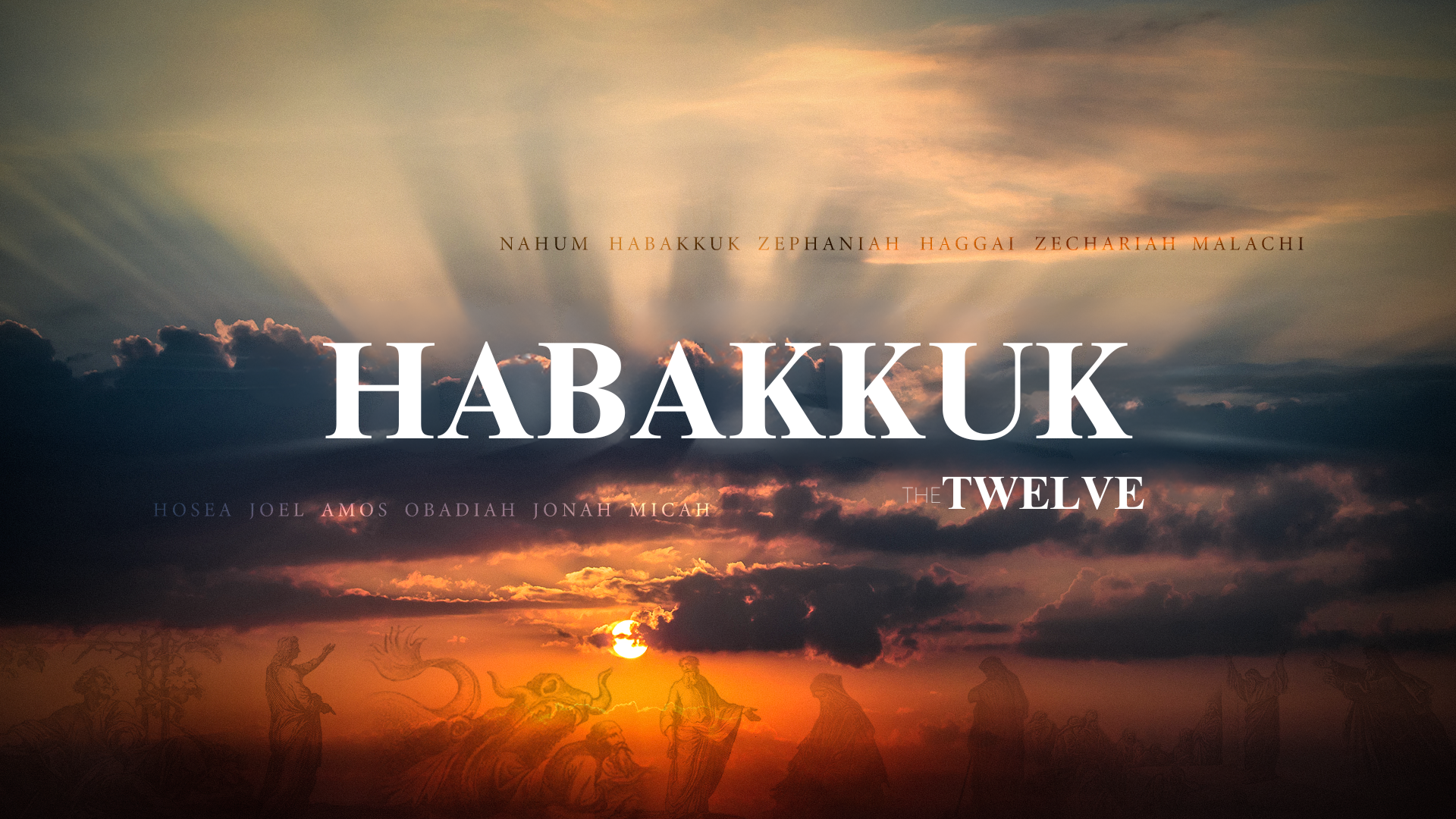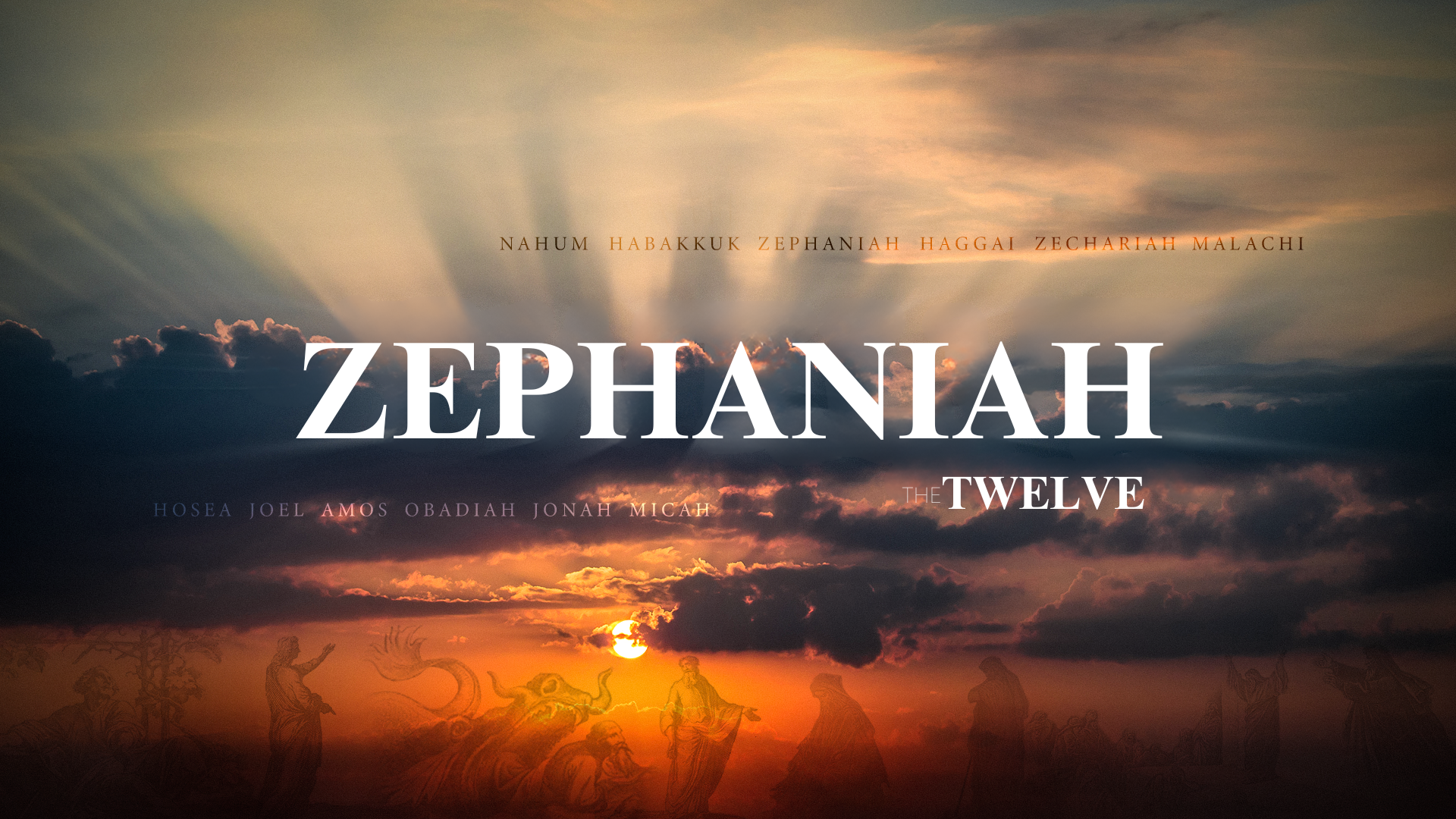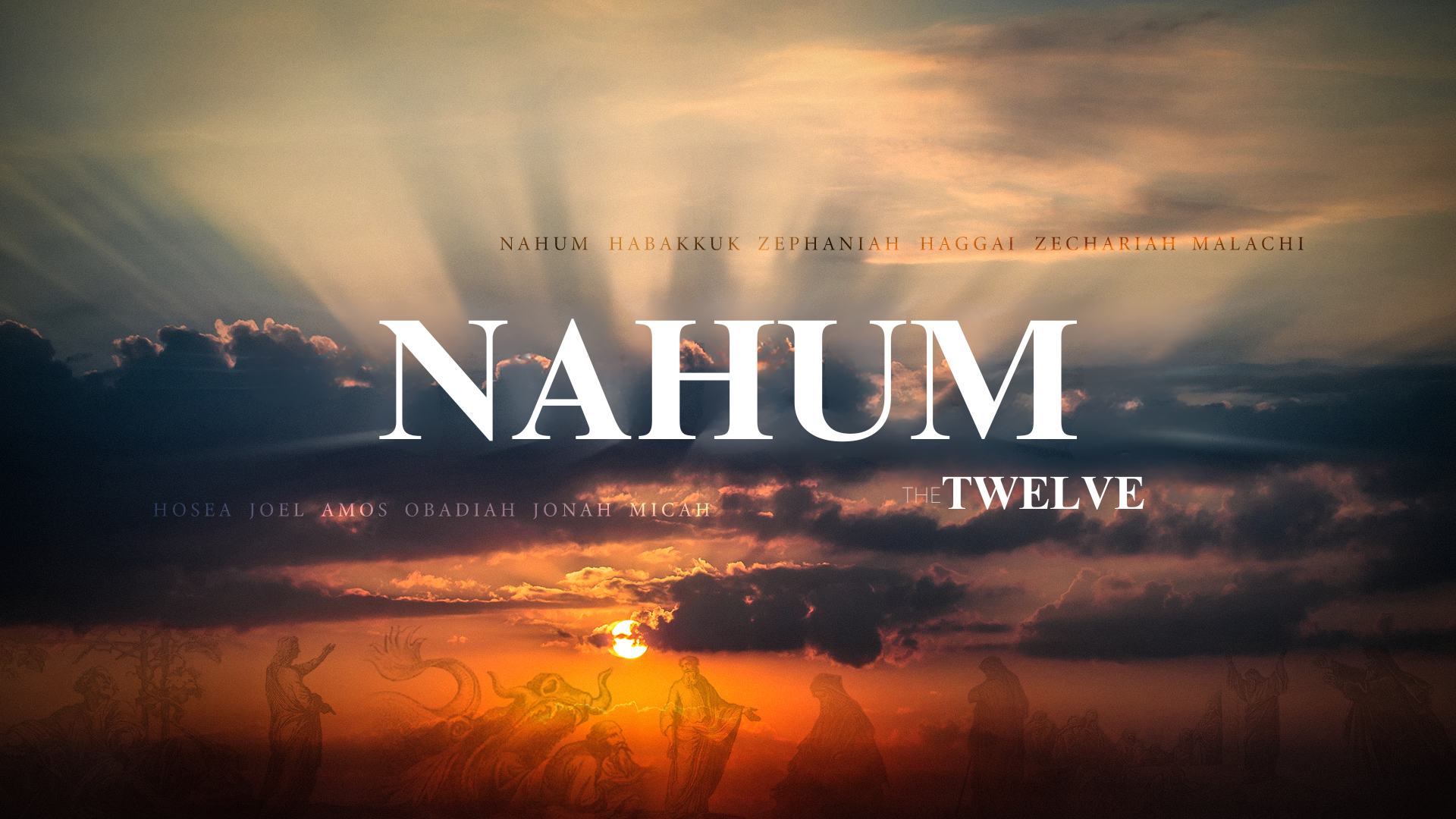MANUSCRIPT
Last week we finished our study of chapter 4, the middle point of the book and the beginning of the restoration portion of the second oracle...today we will cover chapter 5, which will complete the second oracle of the book...
The book of Micah is the transitional prophecy of the Twelve, the bridge between the prophets who spoke primarily to Israel in the north and those who spoke primarily to Judah in the south...he spoke a message of both judgment and restoration...a final word of judgment to the north, and a word of warning but also of hope for the south, Judah...his call is to return to the Lord their God while there is yet time...
This slide places him as the first prophet speaking to Judah, during the reign of Hezekiah, and he is followed by the prophet Nahum, about fifty years later...
Now we turn to chapter 5, the end of the second oracle... and the most famous passage in the book, which I suggest is the theological center of Micah’s prophecy: verse 2
The chapter has three closely related passages...
Verses 1 through 5a, which focuses on the work of God in and through Israel’s Shepherd-King, our Saviour, Jesus Christ
Verses 5b through 9 speak to the work of God through the remnant of Jacob, His people
Verses 10 through 15 address the work of God in the remnant of Jacob, His people
Let’s dive into the text at verse 1...
Now muster your troops, O daughter of troops;
siege is laid against us;
with a rod they strike the judge of Israel
on the cheek.
Note the first word, which played such a pivotal role in last week’s text...”now” -- it sets this moment in the present or foreseeable present tense, not the distant-future tense of the “latter days”...the enemy is approaching and it’s time to muster whatever troops remain in Jerusalem...the sense of the word “daughter” is similar to the meaning of “daughter of Zion”...the best understanding is “city” --- for the enemy, given the description, is the nation Micah has already predicted will take Jerusalem captive: Babylon...Assyria is ruled out because the ruler of Israel, King Hezekiah at the time, was not struck on the cheek in any sense...in fact, Assyria was crushed by the Lord as we see in II Kings 18...and while it’s true that Jesus was struck on the face in His trial, it wasn’t by a foreign army, and the word “ruler” in verse 1 isn’t the same Hebrew word as the one used on Christ in verse 2...but Babylon, led by Nebuchadnezzar in 605 B.C., did lay siege to Jerusalem, and he tortured the judge or king of Israel, Judah’s last king, Zedekiah, blinding him before he took him into exile in Babylon (see Jeremiah 52.10-11)
What’s the point of this prophecy focused on the soon-coming destruction of Jerusalem and the humiliation of their king, or judge, in verse 1?
It’s to heighten the contrast with, and the beauty of, the ultimate ruler of Israel, the Saviour-Messiah, the Great Shepherd-King, Jesus Christ...
2 But you, O Bethlehem Ephrathah,
who are too little to be among the clans of Judah,
from you shall come forth for me
one who is to be ruler in Israel,
whose coming forth is from of old,
from ancient days.
What a beautiful prediction of the birth of our Lord...let’s begin with the first word...”but”...it’s a powerful word that captures our full attention...”we really love this house, it’s beautiful, but...” -- “you interviewed quite well for this position, but...” -- “I’ve really enjoyed spending time with you, but...” -- whatever follows that word is the most important thing the speaker will say...
Micah names a small town in Judah, Bethlehem, in the region of Ephrathah, about six miles from Jerusalem, as the birthplace for this coming ruler of Israel, but I’m sure his hearers had to wonder if they heard him right, because Bethlehem was so small and insignificant; it wasn’t a capital, it wasn’t a fortified city, it wasn’t even one of the top 115 cities or towns named in Joshua 15 in the allotting of the land...Bethlehem means “house of bread” and Ephrathah means “bountiful” or “fruitful,” which are fitting names...and the love story of Boaz and Ruth took place in Bethlehem...but most importantly for the nation, Bethlehem was the hometown of David, son of Jesse, great-grandson of Boaz and Ruth, and Israel’s greatest ruler...here again we see God’s practice of preferring the small and weak over the great and strong...now He chooses a small, insignificant town probably without even a traffic light to be the birthplace of His own Son...where the high and exalted kings of Jerusalem miserably failed, the meek King of Kings born in backwater Bethlehem would succeed...and why would He triumph? Because much more than David, Jesus perfectly relied on His Father, doing everything in accordance with His will, not Jesus’s own will...His lowly birthplace heralded His humble life, lived in perfect obedience to His Father...
from you shall come forth for me
one who is to be ruler in Israel,
whose coming forth is from of old,
from ancient days.
Notice the Father’s words here...why would Messiah come? For Himself, for David, for Israel, even for the world? No, He came for His Father, to do His will...hear John 6.37-38
37 All that the Father gives me will come to me, and whoever comes to me I will never cast out. 38 For I have come down from heaven, not to do my own will but the will of him who sent me.
Jesus came for His Father -- to fulfill the Father’s purpose to call out a people for Himself
Jesus will be God’s ruler in Israel; indeed, in the entire world...His coming forth will be “from of old” -- the Hebrew could mean “from eternity” or “from everlasting” but the context leads us to understand this future ruler as arising from ancient Israel, from David’s line...from “of old”
This is the center of the book because this promised Ruler in Israel, brought forth from and for the covenant God, is everything the earthly leaders of the nation were not...He is of David’s line, a Branch from the stump of Jesse, perfectly righteous and holy...as we now see looking back to the cross, Jesus Christ, born in Bethlehem according to Micah’s prophecy, was born into obscurity, not prominence, poverty, not wealth, and is the ultimate fulfillment of the great Shepherd-King foretold here...we read of it in Matthew 2.4-6...
4 and assembling all the chief priests and scribes of the people, he inquired of them where the Christ was to be born. 5 They told him, “In Bethlehem of Judea, for so it is written by the prophet:
6 “‘And you, O Bethlehem, in the land of Judah,
are by no means least among the rulers of Judah;
for from you shall come a ruler
who will shepherd my people Israel.’”
The even the scribes of Jesus’s day knew where Messiah would be born, but not when...until, as Paul says in Galatians “in the fullness of time” Jesus was born according to all the prophecies spoken of Him...
Now the text turns to the question of time...
3 Therefore he shall give them up until the time
when she who is in labor has given birth;
then the rest of his brothers shall return
to the people of Israel.
“Therefore” ...based on what is said just before this, God shall give them, His people up...up to what? To the divine discipline required by their persistent idolatry and sinful community life, made evident in both the northern and southern kingdoms...they remain His people, to be certain, but God will bring them through tremendous adversity and suffering in order to bring about His greater and good purposes in them...and when you look at the history of the nation of Israel from the beginning of the exilic period, 722 B.C, to the New Testament era, it is filled with anguish and despair and destruction; even the rebuilding effort undertaken by Judah as they returned from Babylon was opposed by the nations surrounding them...even in the intertestamental period of 400 B.C. to the birth of Christ, apart from the brief period of independence under the Maccabees, those years were characterized by domination by foreign powers, finally by Rome as the New Testament era dawned...yes indeed, God gave them up for a season...
“Until the time when she who is in labor has given birth” ... could that mean the time of the nativity of Jesus, when Mary brought forth her first-born Son? Certainly...but let me also point out that Micah himself spoke of the daughter of Zion, Jerusalem, being in labor just 11 verses ago in chapter 4, and it’s always a good idea to look first to the context of the book to understand the book...the point is this: God was going to bring forth His Son incarnate, the promised, long-awaited Messiah, through the Israelite people...and the suffering those people would experience in this period can rightly be compared to the travail of birth pangs...God was about to accomplish the miracle of the incarnation, through His disobedient and rebellious people, but He would relentlessly accomplish it, nevertheless...
And then the rest of His brothers shall return...Messiah’s brothers will include the Jewish people, of course, but also the Gentiles, the people of the nations, those who were once far from God and apart from the covenant...one of the most hope-filled verses in the Bible for a non-Jew is John 10.14-16...
14 I am the good shepherd. I know my own and my own know me, 15 just as the Father knows me and I know the Father; and I lay down my life for the sheep. 16 And I have other sheep that are not of this fold. I must bring them also, and they will listen to my voice. So there will be one flock, one shepherd.
Paul picks up that wonderful theme in Ephesians 2.13-14, as he speaks of the Gentiles being drawn near by the very grace of God, making the Jews and Gentiles one...
13 But now in Christ Jesus you who once were far off have been brought near by the blood of Christ. 14 For he himself is our peace, who has made us both one and has broken down in his flesh the dividing wall of hostility
This unity doesn’t deny differences, but it does serve to make us one in Christ...
And in Romans 11, Paul talks of the grafting in of the Gentiles into the cultivated olive tree of the Jews...far from replacing the Jews, the church is joining the flock of God under our One Great Shepherd-King...to the Jew first, and also to the Greek, as it says in Romans 1.16...
Now we turn to the work of this One who is to be born ruler in Israel...
4 And he shall stand and shepherd his flock in the strength of the Lord,
in the majesty of the name of the Lord his God.
And they shall dwell secure, for now he shall be great
to the ends of the earth.
5 And he shall be their peace.
Messiah will stand -- the word means to “arise” or “rise up” -- and He will shepherd His flock as His earthly ancestor David did before Him, but this flock will encompass all those throughout all times and places who are the elect from before the foundation of the world, who have been bought by the blood of the Lamb, who are in the assembly of the firstborn who are enrolled in heaven (Hebrews 12.23), who are the citizens of a kingdom which cannot be shaken...and we will follow our faithful Shepherd, Jesus Christ, in the strength of the Lord, and the majesty of the name of the Lord His God...and in Him, in that Name, we shall dwell secure, both Jews and Gentiles, for He shall be great...not in Israel alone, or the surrounding nations, or even distant lands...but to the ends of the earth...Lord haste the day when He shall be our Peace.
Now we turn to the second portion of the text, verses 5b through 9...the work of God through His people...
When the Assyrian comes into our land
and treads in our palaces,
then we will raise against him seven shepherds
and eight princes of men;
6 they shall shepherd the land of Assyria with the sword,
and the land of Nimrod at its entrances;
and he shall deliver us from the Assyrian
when he comes into our land
and treads within our border.
In that day, God will work through His people to defend against the attacks of their enemies, even world powers like Assyria and Nimrod, whom we first see in Genesis 10.8, 10-11
8 Cush fathered Nimrod; he was the first on earth to be a mighty man. 10 The beginning of his kingdom was Babel, Erech, Accad, and Calneh, in the land of Shinar. 11 From that land he went into Assyria and built Nineveh...
The land of Shinar is Babylon...see Daniel 1.1-2...so to defend against Assyria and Babylon is to defend against the two most powerful enemies Israel faced...the two empires which took the people into exile...but in the days of the Great Shepherd-King, God’s people will have more than enough strength and leaders -- seven or eight shepherds or princes -- to turn back the attacks of their adversaries...in the strength of their God...
7 Then the remnant of Jacob shall be
in the midst of many peoples
like dew from the Lord,
like showers on the grass,
which delay not for a man
nor wait for the children of man.
8 And the remnant of Jacob shall be among the nations,
in the midst of many peoples,
like a lion among the beasts of the forest,
like a young lion among the flocks of sheep,
which, when it goes through, treads down
and tears in pieces, and there is none to deliver.
9 Your hand shall be lifted up over your adversaries,
and all your enemies shall be cut off.
Look carefully at verses 7 and 8...they continue the thought of God working through His people, and they start just the same...but after that, they could hardly be more different...let’s look at them one at a time...
Verse 7 locates God’s people in the midst of “many peoples” or nations...and the effect on those surrounding them is very positive...God’s people are described as “dew from the Lord” “showers on the grass”
In this verse, the effect of the people of God is like the effect of life-giving, sustaining water in a dry and weary land...it brings forth goodness and fruitfulness where there had been none...and the source of this positive impact is clear -- the dew is “from the Lord”... not from Baal, the false goddess of fertility to whom the people had given their worship...
Paul speaks to this duality of the effect of God’s people in II Corinthians 2.14-16a...
14 But thanks be to God, who in Christ always leads us in triumphal procession, and through us spreads the fragrance of the knowledge of him everywhere. 15 For we are the aroma of Christ to God among those who are being saved and among those who are perishing, 16 to one a fragrance from death to death, to the other a fragrance from life to life.
In a very important way, the people of God are a gift from the Lord Himself to the people of the earth fortunate enough to live around them...this was always God’s intent for His people...most importantly in the coming of Messiah, but in everyday life, too...Genesis 12.2-3...
2 And I will make of you a great nation, and I will bless you and make your name great, so that you will be a blessing. 3 I will bless those who bless you, and him who dishonors you I will curse, and in you all the families of the earth shall be blessed.”
Not only would Abraham and his descendants be blessed by God, but they would also be a blessing from God...and throughout history, and today as well, the same should be true...the effect of those faithful to our God upon societies around the world has been positive, if not always popular...and yet today we must take seriously the call to bless those around us with the gospel, and with godly love and kindness...
But there is another purpose God has in store for His people...divine judgment of their enemies...not a thought we often find in scripture, but it is present...His people will be...
like a lion among the beasts of the forest,
like a young lion among the flocks of sheep,
which, when it goes through, treads down
and tears in pieces, and there is none to deliver.
The promise and purpose of God is that those who have suffered for a season at the hands of the world, the flesh, and the devil, will not only arise by the Spirit of God, but they will crush their adversaries...Israel suffered and will rise triumphant...God’s church has suffered as well, and will rise triumphant...God and His people will ultimately reign in victory, their enemies defeated, their foes forever conquered...because of our own strength? No...because of the power of God and our God-given faith in Him...Psalm 91.1-2...
He who dwells in the shelter of the Most High
will abide in the shadow of the Almighty.
2 I will say to the Lord, “My refuge and my fortress,
my God, in whom I trust.”
Stand strong in Jesus, church of the living Lord, for our God reigns!
Now Micah reaches the end of this salvation oracle with the work of God in His people...
10 And in that day, declares the Lord,
I will cut off your horses from among you
and will destroy your chariots;
11 and I will cut off the cities of your land
and throw down all your strongholds;
12 and I will cut off sorceries from your hand,
and you shall have no more tellers of fortunes;
13 and I will cut off your carved images
and your pillars from among you,
and you shall bow down no more
to the work of your hands;
14 and I will root out your Asherah images from among you
and destroy your cities.
15 And in anger and wrath I will execute vengeance
on the nations that did not obey.
Like the second section, this third and final portion of the text also breaks into two parts, with a one verse summary at the end...God’s overarching purpose is to deny His covenant people their two false sources of confidence, their two favorite idols...in that day, He will no longer permit His people to place their faith in anyone or anything other than the He Himself...first He addresses the military might of the people...
10 And in that day, declares the Lord,
I will cut off your horses from among you
and will destroy your chariots;
11 and I will cut off the cities of your land
and throw down all your strongholds;
Look at the verbs...”cut off” “destroy” “throw down” -- and the nouns “horses” “chariots” “cities” “strongholds” -- God will take from them all the military power they have...while the Assyrians and Babylonians took Israel and Judah into captivity and exile, in truth it was God at work, stripping of His unfaithful people the meager power they thought they had...God is saying here, as He does in Job chapter 40, that our own right hands cannot save us...our only hope is in Him...
The same is true of those false idols to whom we have shamefully given our worship...for Israel, they were sorceries, fortune tellers, worship pillars, images of Ashtaroth...for us today? Popularity, power, money, fame, recognition...whatever we desperately want in our flesh that the world says it can provide...God in His grace and mercy strips away from us all those things in which we wrongly place our trust...and then, in the final word of the chapter, God speaks vengeance over the nations, indeed all those, who refuse to bow to His Lordship...those who rise up in rebellion against the Almighty God, following in the path of Satan himself...
We see the work of God the work of God in and through Israel’s Shepherd-King, our Saviour, Jesus Christ
The work of God through the remnant of Jacob, His people
And the work of God in the remnant of Jacob, His people
Church, our God is good...blessing and honor to His Name!
We’ve already touched on points of application along the way, but let’s look carefully at what we need to learn from this important chapter...
Don’t look to people for deliverance or salvation...they cannot do what only God can do
God loves using the small, weak, unknown people and places in our world to shame those people who believe they are important and wise...so don’t adopt the world’s view about who and what is important...instead, learn to see through God’s eyes...
Final and complete restoration and redemption are coming for God’s people...but for now we will suffer adversity...and while Jesus promised that because the world hated Him, they will hate us, too, we must not lose hope, for our God is faithful...
We have a Great and Good Shepherd-King...we’re not here in a hostile enemy-occupied territory, fighting the good fight all on our own...His Holy Spirit is both with us and in us...and He has given us everything we need for life and godliness...so stand strong
Take the gospel to the world...if they receive it, we will be as life-giving rain from the Lord to them...but if they refuse, all that remains is a certain judgment...but remember, our job is to tell -- not convince, persuade, or save -- we are not the Holy Spirit, but we can share His truth...
And never, never place your faith and trust in anyone or anything other than the Almighty God -- not in the ways and means of the world, not in those whose voices offer a different gospel, not in yourself...Psalm 56.10-11 says
10 In God, whose word I praise,
in the Lord, whose word I praise,
11 in God I trust; I shall not be afraid.
What can man do to me?

Taught by Mike Morris
Associate Pastor of Verse By Verse Fellowship
The Twelve Series
